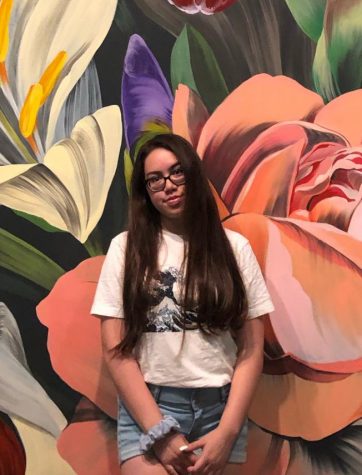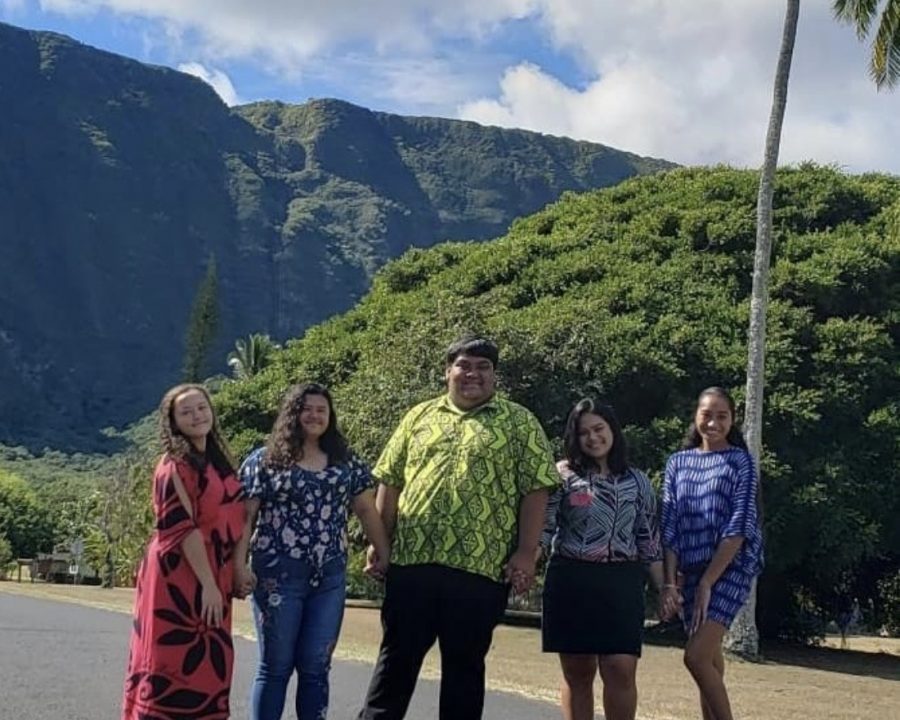Haku Mele Cohorts Expand on Their Legacy
Members of Nā Kuahaʻa a Kaʻupumoaʻula visiting Kalaupapa
Members of the ten Haku Mele cohorts were given the opportunity to expand upon the songs they had written for the 100th annual song contest.
About one month after the ten songs were composed, Kumu Zachary Lum held a meeting that allowed students to propose ideas that would further include the high school student body into the Haku Mele process. Ideas included Hawaiian music concerts, Puʻuhuluhulu University sessions on Kōnia field, and class merchandise that would bring awareness to the meaning and importance behind the songs that were written.
Since the meeting, a few groups have decided to take action on expanding on their songs. A few members of Nā Kuahaʻa a Kaʻupumoaʻula, the composers of “He Aloha no Kalaupapa”, had the opportunity to travel to Kalaupapa on Molokaʻi to gain a sense of the place which they had written about and film clips in order to create a music video. Senior Puʻuwai Tollefson-Kelly said, “I feel like it will help the class to better understand the place, and I hope that through the video, theyʻll be transported to Kalaupapa with us and at least get a little feeling about the place they are singing about.” Senior Pono Sagario said, “It will help to bring a visual to the class because as of right now, the class does not have a clear visual representation of Kalaupapa to go on.”
Similarly, members of Na Hui Ala Loa, the composers of “I Ola Kahoʻolawe”, are also working to create a music video. Senior women’s director Hannah Asano said, “As of right now, each cohort is creating a music video to spread the word about whatʻs happening around us. Each mele has its own message and this video is the way to interest people. The hope is to inform and inspire others to take action.”
The main focus surrounding all the groups is providing the rest of the student body with a way to better understand the topics which are being highlighted in this year’s song contest, with the eventual desire for them to become apart of the process itself. Junior womenʻs director, Keila Mokulehua said “It all depends on the class and whether or not they would be interested in watching the music video. You can never force a class to watch something that they don’t care for unless they have a passion for it.”
Beyond providing the student body with a better understanding of the mele that was written, the bigger importance lies in the impact that these meles will have on future generations. “In essence, moving the Haku mele process past simply writing the song allows for people now and people in the future to have the same understanding of the words and nuances the students, kumu, and Haku Mele have implemented into their songs. It may even lead to and allow people coming after us to have a greater understanding of the mele written today” Senior Chase Kane said.

EMAIL: [email protected]
Aloha! My name is Kiersty McKee and I am from Papakōlea, Oʻahu. I am currently a senior, and I began my journey at Kamehameha in Kindergarten. I am a member of the Concert Glee Club, the senior class board, as well as a few clubs on campus. This is my first year writing for Ka Mo'i, and I joined to determine my interests going into college to possibly decide on a major and career path.



Kanoe Igarashi • Feb 16, 2020 at 4:23 pm
I really loved this article because I think that having students write their own songs will boost school pride and enthusiasm among students to learn more about the history of Hawaiians and our language. It’s a great way to get students more involved in song contest!
Kealani Lui-Kwan • Feb 12, 2020 at 2:33 pm
This article is great! I had no idea that they were selling merch either!